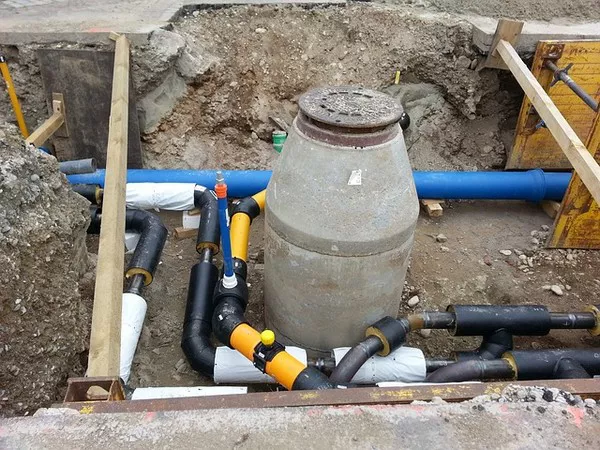In contemporary urban and rural environments, effective wastewater treatment is paramount to maintaining public health and environmental sustainability. Among the various sewage treatment solutions available, package sewage treatment plants stand out for their efficiency, versatility, and compact design. This article delves into the concept of package sewage treatment plants, exploring their functions, benefits, and applications in modern wastewater management systems.
What is a Package Sewage Treatment Plant?
A package sewage treatment plant, often referred to as a packaged wastewater treatment plant or prefabricated sewage treatment plant, is a self-contained unit designed for the biological treatment of domestic or industrial wastewater. Unlike traditional sewage treatment plants that require extensive civil engineering and construction, package plants are factory-assembled, compact systems that can be easily transported and installed on-site with minimal civil works.
Components and Functionality
Package sewage treatment plants typically consist of several integrated components, each serving a specific function in the treatment process:
Inlet Chamber: Wastewater enters the treatment plant through the inlet chamber, where large solids and debris are screened and removed to prevent damage to downstream equipment.
Primary Treatment: In the primary treatment stage, solids settle out from the wastewater through sedimentation or flotation, forming sludge at the bottom of the tank. This process reduces the organic load and improves the efficiency of subsequent treatment stages.
Biological Treatment: The heart of the package sewage treatment plant lies in the biological treatment unit, where microorganisms (such as bacteria and protozoa) break down organic pollutants present in the wastewater through aerobic or anaerobic processes. This stage typically occurs in aeration tanks or biofilters, where oxygen is supplied to support microbial growth and activity.
Secondary Clarifier: After biological treatment, the wastewater flows into a secondary clarifier, where remaining suspended solids settle out, and clarified effluent is separated from the sludge.
Disinfection: In some package sewage treatment plants, disinfection is carried out to kill harmful pathogens and bacteria in the treated effluent. Common disinfection methods include chlorination, ultraviolet (UV) irradiation, and ozonation.
Effluent Discharge: The treated effluent is discharged into the environment, often meeting stringent regulatory standards for water quality and safety.
Benefits of Package Sewage Treatment Plants
Package sewage treatment plants offer several advantages over conventional wastewater treatment systems:
Compact Design: The modular and compact design of package plants allows for easy installation in tight spaces, making them ideal for decentralized wastewater treatment in urban areas, remote locations, and small communities.
Rapid Deployment: Since package plants are pre-engineered and factory-built, they can be quickly deployed and commissioned, reducing construction time and project costs compared to conventional treatment plants.
Scalability: Package sewage treatment plants can be easily scaled up or down to accommodate varying wastewater flows and loads, providing flexibility for future expansion or modifications as population or industrial activities grow.
High Treatment Efficiency: Despite their small footprint, package sewage treatment plants are capable of achieving high levels of treatment efficiency, effectively removing organic pollutants, suspended solids, and pathogens from wastewater to meet regulatory requirements.
Low Operating Costs: The efficient design and automation of package plants result in lower energy consumption, reduced chemical usage, and minimal maintenance requirements, leading to lower operating costs over the plant’s lifecycle.
Environmental Sustainability: By treating wastewater locally and producing high-quality effluent, package sewage treatment plants help protect natural water bodies from pollution, safeguarding public health and preserving ecosystem integrity.
Applications of Package Sewage Treatment Plants
Package sewage treatment plants find diverse applications across various sectors and settings:
Rural Communities: In rural or remote areas where centralized sewerage infrastructure is impractical or cost-prohibitive, package sewage treatment plants provide a viable solution for decentralized wastewater treatment, enabling safe disposal of sewage without contaminating groundwater or surface water sources.
Residential Developments: Package plants are commonly used in residential subdivisions, housing estates, and individual households to treat domestic wastewater from toilets, sinks, showers, and laundry facilities, ensuring compliance with sanitation standards and environmental regulations.
Industrial Facilities: Many industrial sectors, such as food processing, manufacturing, and mining, generate wastewater containing high concentrations of organic pollutants, nutrients, and toxic substances. Package sewage treatment plants offer customized treatment solutions tailored to the specific wastewater characteristics and discharge requirements of industrial facilities.
Commercial Establishments: Hotels, resorts, restaurants, shopping malls, and other commercial establishments require efficient wastewater treatment to maintain hygiene standards and comply with regulatory requirements. Package sewage treatment plants provide on-site treatment solutions that minimize environmental impact and ensure sustainable water management practices.
Temporary Installations: Package sewage treatment plants are well-suited for temporary or emergency wastewater treatment needs, such as construction sites, temporary camps, festivals, and disaster relief operations, where rapid deployment and removal are essential.
Conclusion
Package sewage treatment plants play a crucial role in modern wastewater management, offering efficient, cost-effective, and sustainable solutions for treating domestic, industrial, and commercial wastewater. With their compact design, rapid deployment capabilities, and high treatment efficiency, package plants contribute to environmental protection, public health, and water resource conservation. As the demand for decentralized wastewater treatment continues to grow, package sewage treatment plants will remain a key component of comprehensive wastewater management strategies worldwide.


